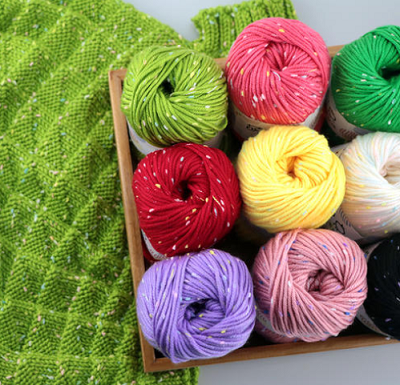This article will introduce you to a relatively rare textile fabric, which is milk cotton. Of course, it is more commonly known as milk silk. This is a protein fiber that is produced by defatting liquid milk. The slurry is treated with a softener and finally made through processes such as wet spinning. The entire production process of milk cotton is relatively complicated and the cost of raw materials is relatively high. Therefore, the selling price of this kind of fabric has also increased, but there are also There are some milk cotton made from polyester and other chemical fibers. The price of this kind of fabric will be relatively low. This article will introduce to you some characteristics of milk cotton, including its shortcomings, advantages and uses.

Disadvantages of milk cotton:
First of all, the production process of this kind of fabric is relatively complicated, and the cost of labor and materials is high, which makes the price of the fabric higher. In addition, wearing milk cotton fabric in a dry environment can easily cause static electricity, and the fabric’s washing resistance is poor. If washed frequently, pilling and other phenomena may easily occur.
Advantages of milk cotton:
Of course, the advantages of milk cotton far outweigh the disadvantages. Milk protein fiber contains a variety of amino acids, so the fabric produced with this fabric can be worn close to the body. It has the effect of caring for the skin. In addition, the milk cotton fabric has outstanding antibacterial functions. Clothes are not prone to bacteria and mildew, so this type of clothing is easier to take care of.
In terms of hand feel, milk cotton is similar to pure cotton. It feels soft but has better elasticity. The fabric is relatively thin and has good breathability. The color fastness of the fabric is high, and the clothes will not wear out after being worn for a long time. The phenomenon of fading occurs, also known as “fading” fabrics.
However, there are very few 100% milk cotton fabrics nowadays. They are basically modified with polyester or blended with cotton or chemical fiber and milk protein fiber, so we need to distinguish the ingredients clearly when purchasing such fabrics.
Uses of milk cotton: Milk cotton is mainly used in the field of clothing and textiles. For example, T-shirts, cardigans and scarves can be made of milk cotton fabric. There are also milk cotton for sale. Search for “milk cotton” in the mall to see the specific price of the fabric.


